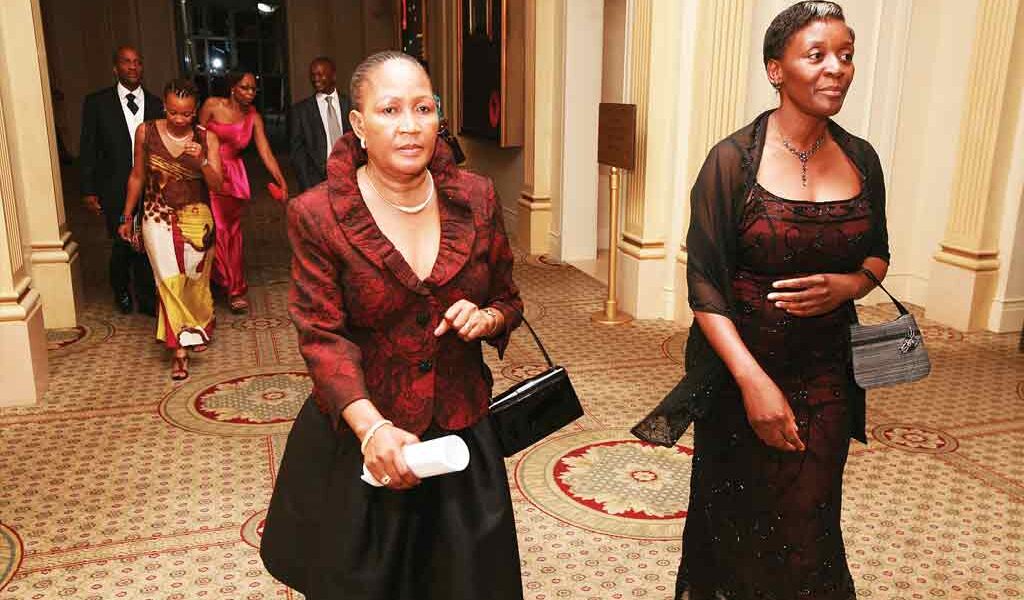More women are being appointed to leadership positions in Botswana with the country being among the top ten countries in the world when it comes to its number of female CEOs, reveals the annual Grant Thornton survey.
One of the driving forces behind the fiscal strength of one of Africa’s top economies is Botswana’s Central Bank Governor, Linah Mohohlo; a woman who has twice been chosen as Central Bank Governor of the Year for the region, has served on the Commission for Africa and is credited for her role in establishing Botswana’s sound monetary policy and good credit rating and investment profile.
She is one of many women in leadership positions in Botswana – a country that is rated among the top 10 countries in the world for female CEOs. The latest Grant Thornton annual survey, released in March 2016, revealed that there was an increase of 7% to 23% from last year for women in leadership positions in Botswana. The country beat many industrial countries like Germany (with a dismal 15%) and Japan with a poor 7%.
This is good news for the economy – research shows that gender diversity is good for business. “There is plenty of research showing that gender diversity has many benefits for companies,” comments leadership development practitioner Liz de Wet from the UCT Graduate School of Business (UCT GSB). She says a recent study by Gallup found that gender-diverse business units have better financial outcomes overall than those dominated by one gender.
Botswana has over recent years made great strides towards gender equality with several government policies and initiatives in place to promote women in business, to help them with networking, recognition in the workplace and guidance in career development.
Mohohlo herself has said: “We have to make sure that women are equal partners in efforts to turn the corner. If women were to take part, we’d begin to see not just good governance but also leadership from a political and business standpoint.”
A key part of such a strategy around gender empowerment is education. Botswana has a slightly higher percentage of women in primary and secondary schools, according to stats from Unicef.
Mark Farrar, Chief Executive Officer of the Association of Accounting Technicians (AAT), says there is also a high percentage of women enrolling for qualifications with AAT. The company is a UK-based qualification and professional body for vocational accountants operating in over 90 countries with over 135,000 worldwide.
Farrar says it is no coincidence that so many women in Botswana are turning to financial qualifications. Financial skills are in high demand in Botswana where government has been diversifying the economy over recent years to try and shift the country’s dependence on its rich diamond reserves – which some say will last only another two decades.
Although small when compared to neighboring South Africa, the banking sector is growing too with new products and services delivered to customers. Some financial qualifications, like those from AAT, can be studied part-time, as well as full-time and are open to students with little to no previous experience. They offer students like Payroll Executive Stephinah Jeremiah, 28 a way onto the corporate ladder.
“AAT changed my life,” says Jeremiah, explaining that the financial skills she learnt while doing her accounting qualification ensured that she was able to get a job right away. “I did not have to wait after varsity like other students who struggle with job opportunities.”
AAT offers the popular AAT Accounting Qualification. No prior qualifications are needed and students are taught financial skills that they can use straight away in the work place.
It is a link to the world of finance, as well as a stepping stone to the world of business and entrepreneurship, which many women are keen to join.
This was the case for Tsholofelo Moitobo, who started her own management company after completing her AAT Accounting Qualification, compiling tax returns and doing accounts for companies.
“An accounting background is very important for business. Botswana has many opportunities for women to start businesses but they can only succeed if they have an accounting background,” says Moitobo.
“I am now managing two successful companies thanks to it,” says Moitobo, who believes more women would benefit from the kind of qualification she got.
“AAT provides an opportunity for people in Botswana to gain practical skills that will help progress their careers in finance,” says AAT CEO Mark Farrar. “Botswana has our largest cohort of students outside of the UK and perhaps it is so popular because it offers a vocational route into the accountancy profession without needing to go to university first.”
While the future does look bright for Botswana, challenges do remain. Despite the progress made for equality and diversity, there still are gender-related obstacles, says Central Bank Governor Linah Mohohlo. “More women need to be empowered through appointments to senior positions in both the public and private sectors for which they qualify and in which they excel, precluding the need for affirmative action.”
Mohohlo, who grew up in rural Botswana, worked hard to make her way to the top. While she acknowledges that women do encounter resistance, she believes in being confident and self-motivated.
“I don’t think anyone who wants to succeed male or female should concentrate on hurdles because you will find them if you are looking for them, and I have been just too busy to spend time looking for obstacles.”
Moitobo agrees but says without financial skills and qualifications, she would not be where she is today. “A financial skills qualification was my door to happiness and riches. I am now managing two successful companies thanks to it. It really has empowered me.”
Source: Association of
Accounting Technicians

